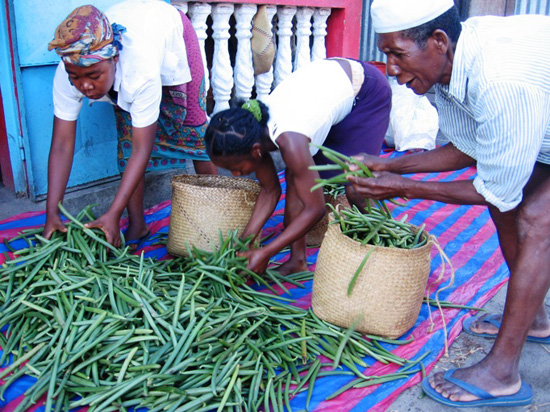
I'm amazed at how superior your vanilla is!
– Des, The Grommet
Jatropha, curcus, is a member of the Euphorbiaceae family, a large group of shrubs and trees native to the Caribbean, Mexico and Central America. It is variously known as “physic nut,” and “pinoncillo.” Most varieties of these small trees have highly toxic elements but the variety native to Veracruz, Mexico, is apparently less toxic than most. It is a very hardy plant, drought tolerant, and capable of growing in poor soil. It produces fruits within two years of planting. The fruits contain seeds with a high oil content. The Mexican variety of Jatropha produces seeds that can be roasted and eaten. However, the seeds are more valuable for use in bio-diesel. The press cake left over from pressing the oil is useful as animal feedstock or fertilizer.
Jatropha trees were taken by the Portuguese to Africa and Asia originally for use as hedges. Jatropha is now intercropped with other plants, such as vanilla, a trailing vine, which uses the trees as a support. Jatropha’s use as a producer for bio-diesel has grown rapidly in the last five years, with India, Southern Mexico, Central America and the Dominican Republic leading in production. Expect to hear more about this interesting tree in the near future.
I was given a small bottle of Rain’s Choice in a gift basket and I have been hooked ever since. The flavor makes all of my baking so much better! I will never use grocery store vanilla again!


© 2021. All Rights Reserved
Designed/Developed by Kat & Mouse